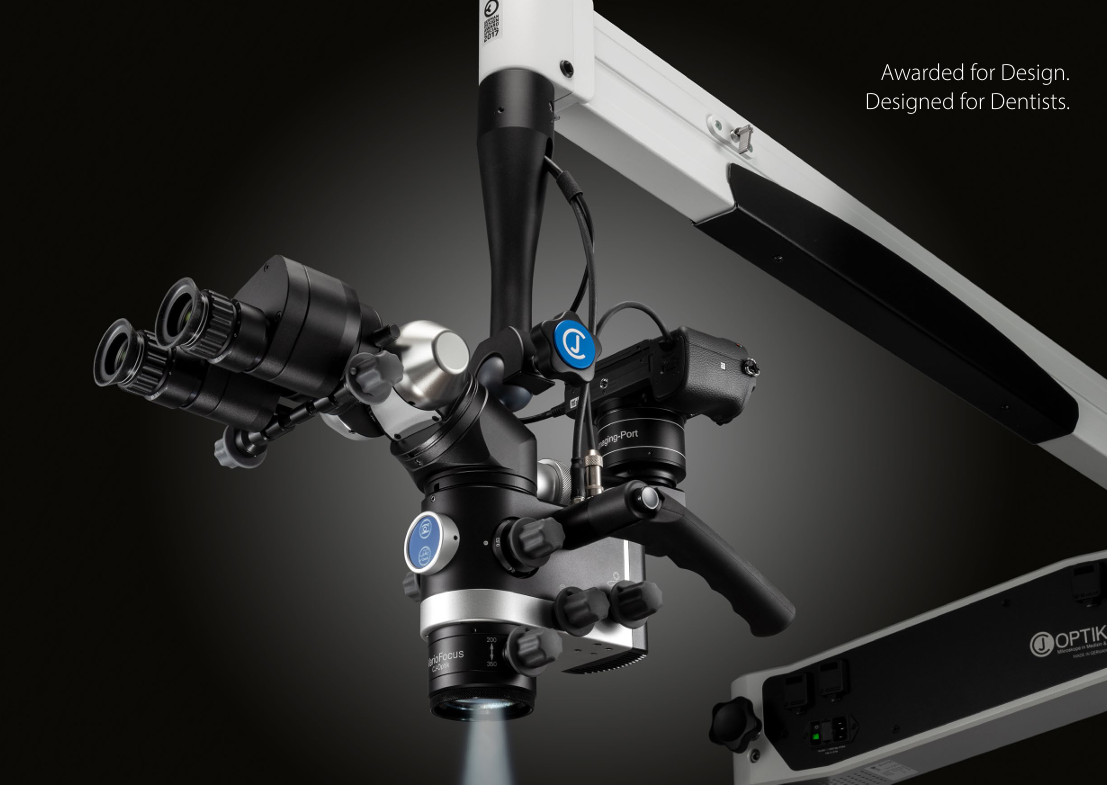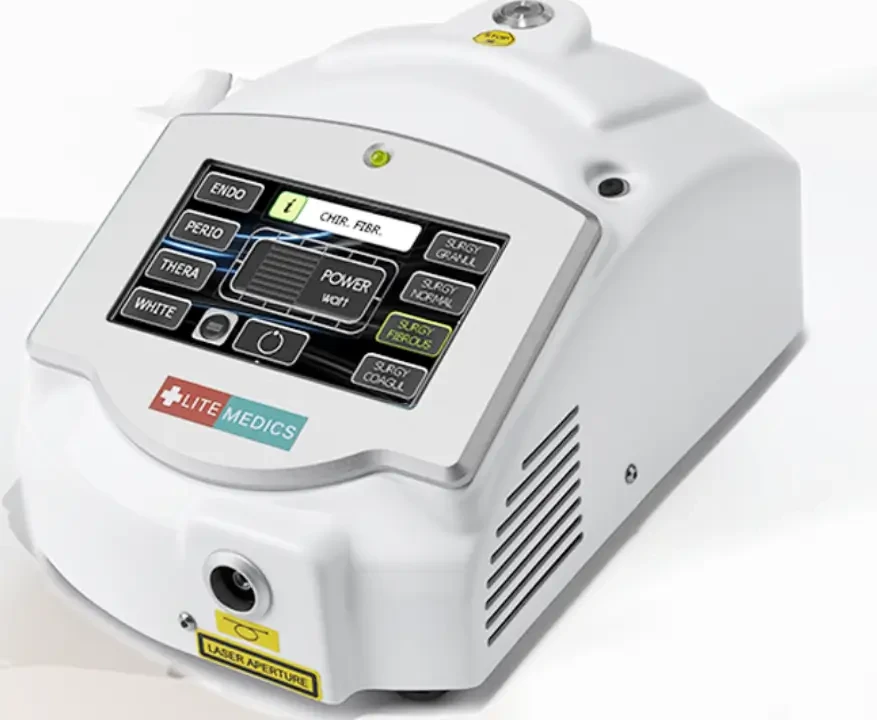Endodontics, also known in popular terms as root canal treatment, is a dental specialty that deals with diseases of the dental pulp and the apical periodontium (the area at the base of the tooth). The term endodontics comes from the ancient Greek words “endon” (inside) and “odontos” (tooth), which reflects the fact that the treatments are applied inside the tooth, beyond the hard enamel. Root canal treatment is quite complex and is performed in several stages to eliminate infections and protect the tooth from other diseases.
What is endodontics?
Endodontics is the branch of dentistry that deals with the diagnosis and treatment of dental pulp infections, which can occur due to extensive caries or due to occlusal trauma. Root canal treatment is necessary when the dental pulp is irreversibly affected. The goal of treatment is to prevent the spread of infection into the dental bone or to treat the infection (if it has already occurred).
What is the dental pulp?
The dental pulp is the tissue inside the tooth that allows it to perform fundamental functions, such as chewing, speaking, and the aesthetics of the smile. It is protected by a hard layer of tooth enamel. The pulp is made up of cells, fibers, blood vessels, nerve fibers, and other components that help the tooth function optimally. The nerve fibers in the dental pulp are responsible for tooth sensitivity.
What is the difference between an endodontist and a dentist?
The main difference between an endodontist and a general dentist lies in their specialization. A dentist addresses a wide range of dental problems, including the prevention, diagnosis, and treatment of oral diseases. A general dentist performs routine procedures and does not specialize in a particular branch of dentistry.
On the other hand, an endodontist is a highly specialized specialist in the treatment of diseases of the dental pulp, nerve, or tissues surrounding the tooth. The endodontist specifically performs root canal treatments, as well as complex restoration procedures for teeth that have been severely damaged by decay or trauma.
What dental conditions does endodontics treat?
Some of the conditions treated by endodontics are:
- Severe decay that has led to infection and necrosis of the nerve and that affects the bone tissue around the tooth. This can lead to abscesses and periodontitis and requires root canal treatments to prevent further infections and save the tooth;
- Deep decay that has been treated but can cause tooth sensitivity to thermal stimuli (hot or cold). This occurs when the dental pulp remains partially damaged or irritated, and the nerve becomes more sensitive;
- Tooth fractures that expose the dental pulp to bacteria and infections;
The main goal of this branch is to prevent tooth loss through specific interventions;
Possible symptoms of endodontic disease
Endodontic disease causes specific symptoms that indicate that the dental pulp is affected. Some of the common symptoms of endodontic disease are:
- Sudden, severe and intense pain that occurs without an apparent cause or in response to external stimuli;
- Persistent discomfort following thermal stimuli, which does not disappear immediately;
- Change in the color of the tooth, which may become darker (gray, yellow or brown) and signals pulp tissue necrosis;
- The appearance of a small fistula in the gum or on the tooth, which may bleed and release pus if pressed;
- Trauma that exposes the dental pulp and allows it to become infected;
- Deep cavities that reach close to the dental pulp.
What is the purpose of endodontic (root canal) treatment?
Root canal treatments refer to the treatment of serious infections and problems of the dental pulp. These conditions can occur due to cavities that, over time, have destroyed the enamel and have reached the root of the tooth. The most common symptom of endodontic conditions is intense and unbearable pain, which brings the patient to the dental office. The goal of treatment is to eliminate the infection, clean the root canals of the tooth and stop the progression of cavities that have reached the level of the dental pulp.
In situations where a previous root canal treatment was not performed correctly or completely, this can lead to a recurrence of the infection or the emergence of new problems. Re-doing the root canal treatment involves cleaning and sealing the root canals correctly.
Endodontic treatment is also essential before performing a prosthetic treatment, especially when the tooth has suffered conditions that have reached the dental pulp. If there is an infection or inflammation in the pulp, it must be treated before applying a prosthetic work (such as a crown or a dental bridge).
Regarding quality endodontic services, some essential aspects are:
- Correct diagnosis, which establishes the the necessity of endodontic treatment. Clinical examinations, radiographs and sensitivity tests identify the problem and assess the condition of the dental pulp. The diagnosis must be very clear, given that endodontic treatment involves the permanent removal of the dental pulp;
- The doctor's experience is very important in endodontic treatments. The procedures require specialized techniques to completely clean the root canals and eliminate the infection. The endodontist must pay close attention to every detail of the treatment;
- Using appropriate equipment, which helps improve the precision of the endodontic treatment and ensures the correct cleaning and filling of the root canals;
- Complete elimination of the infection, proper sterilization of the root canals and the use of appropriate obturation materials that prevent relapses and ensure the effectiveness of the treatment;
- The endodontist must understand the complex structure of the root canals to avoid errors during treatment;
- After the completion of the treatment, the patient will be monitored through periodic radiographs and symptom assessment.
Technologies used in endodontics - Microscope and laser
In endodontics, the technologies frequently used are the microscope and the dental laser.
Endodontics under the microscope
The dental microscope provides a detailed and magnified image of the root canals and helps the endodontist to accurately identify the affected canals and treat them accordingly. Its advantages are:
- Improved clarity, even in hard-to-reach areas;
- Identification of root canals that can easily be missed without a microscope;
- Greater precision in treatment;
- Minimization of errors;
- Reduction of discomfort for the patient.

Laser Endodontics
The dental laser is a technology that improves the efficiency of root canal cleaning. Here are the advantages of using a laser:
- The laser helps eliminate bacteria and infected tissue debris, even in deep areas of the root canals, which may be inaccessible with traditional instruments;
- The laser has a bactericidal effect and destroys microbes and bacteria remaining inside the canals;
- It helps prevent recurrence of dental infections;
- It is a less painful and more comfortable procedure for the patient.

Root Canal Treatment - Stages
Endodontic treatment involves several stages, which are essential for the success of the procedure.
Local Anesthesia
Before starting the root canal treatment, local anesthesia is administered for the patient's comfort. This is an important step, which ensures that the procedure is performed without the patient feeling any pain.
Isolating the tooth from the oral cavity
After the tooth is completely numbed, the endodontist places a thin sheet of rubber (dental dam) over the area targeted for treatment. The dental dam serves to isolate the tooth from the rest of the oral cavity, so that the treated area remains clean during the procedure. This keeps the root canals dry and prevents contamination with saliva or other oral fluids. The endodontist has better access to the tooth to be treated, and the procedure is performed in a controlled and safer environment.
Creating access to the nerve
The endodontist makes a small opening in the top of the tooth to reach the affected nerve. Using a special device, the doctor determines the length of the root canal and then removes the infected tissue inside.
Root canal repair
The canal where the nerve is located will be cleaned and prepared for filling with a special material. This is usually done during the same appointment, and the permanent filling will be done the next appointment.
Root canal filling
After the canals have been properly cleaned and shaped, they will be filled with a special, biocompatible material, usually gutta-percha. Gutta-percha completely seals the root canal to prevent bacteria or other pathogens from entering and causing a new infection. The material is applied using special instruments. An adhesive cement may be used to secure the material in the root canal.
Restoring a Tooth with a Filling or Crown
Restoring a tooth is the final step in root canal treatment and returns the tooth to its normal shape and function. After the root canals are cleaned and sealed, the treated tooth needs additional protection to make it more resistant. Typically, a root canal device is used, which will be placed inside the tooth to help secure a dental crown. The crown can be made of metal, ceramic, or other materials, depending on your needs and preferences.
Endodontic Treatment in Children
In general, root canal treatment in children occurs when a baby tooth is infected or when decay has reached the dental pulp. If the pulp is irreversibly damaged and there is a risk of a dental abscess, treatment is required to save the tooth and prevent pain or further complications. The first step in root canal treatment in children involves removing the infected and necrotic dental pulp. Once the abscess and signs of inflammation have disappeared, definitive treatment can begin. The endodontist may prescribe oral medication only if necessary to support the healing process. Root canal treatment is more recommended than tooth extraction, especially if the tooth can be saved. Although extraction is a quick solution, preserving the natural tooth has more long-term benefits.
The first step in root canal treatment in children involves removing the infected and necrotic dental pulp. Once the abscess and signs of inflammation have disappeared, definitive treatment can begin. The endodontist may prescribe oral medication only if necessary to support the healing process.
Root canal treatment is more recommended than tooth extraction, especially if the tooth can be saved. Although extraction is a quick solution, preserving the natural tooth has more long-term benefits.

Endodontic treatment or tooth extraction - which treatment is more effective?
Tooth extraction involves the complete removal of the affected tooth, including its crown and root. The extraction leaves a gap in the oral cavity, which can cause long-term problems if not corrected by prosthetic treatment (dental implant or bridge). Extraction is necessary in certain cases – orthodontic extractions (to make room for other teeth), wisdom tooth extraction, or when the root of a tooth can no longer be used prosthetically. The extraction is performed under local anesthesia, and after the procedure, discomfort should be minimal.
On the other hand, during root canal treatment, the pulp and bacteria are removed from the root canals of the tooth, and the canals are then filled with a special material. Root canal treatment is more complex than extraction and may require several sessions. It is, however, less traumatic for the oral cavity.
From a cost and time perspective, extraction seems like a quicker and cheaper solution, but in the long run it may require additional treatments to replace the missing tooth. Root canal treatments offer the advantage of preserving the natural tooth and maintaining its functionality and aesthetics in the long term.
Thus, saving the natural tooth through root canal treatment is a better option, especially when considering the costs and complexity of long-term prosthetic treatment.
Endodontic treatments offered by DentArbre Dental Clinic
Endodontists at DentArbre dental clinic are specialized in treating internal tooth diseases and aim to save as many natural teeth as possible. The technology used is the dental microscope, which can accurately identify and treat dental problems and ensure a comfortable procedure for patients. The endodontic treatments in our clinic are as follows:
- Manual endodontic treatment for single-rooted teeth;
- Manual endodontic treatment for multi-rooted teeth;
- Endodontic treatment with rotary instruments for single-rooted teeth;
- Endodontic treatment with rotary instruments for multi-rooted teeth;
- Endodontic treatment for single-rooted teeth under a microscope;
- Endodontic retreatment for single-rooted teeth under a microscope;
- Endodontic treatment for multi-rooted teeth under a microscope;
- Endodontic retreatment for multi-rooted teeth under a microscope;
- Canal filling;
- Removal of crown-root device;
- Pre-endodontic reconstitution;
- Antiseptic treatment;
How much does endodontic (root canal) treatment cost?
Although the cost of root canal treatment is a concern for many patients, at DentArbre dental clinic we offer flexible payment options, including the possibility of paying in installments. In the price list below you will find details about the costs of endodontic treatments.
It is important to note that the price of the treatment varies depending on several factors, including the patient's general oral condition or the degree of damage to the affected tooth.
For more details regarding the price of our services, please contact us.
Endodontic Treatment - Complications
Possible complications after a root canal treatment are:
- Local discomfort or inflammation. If necessary, the doctor may recommend analgesics or anti-inflammatory drugs;
- After the root canal treatment, the tooth may become darker in color;
- The tooth may crack;
- Dental abscess;
- Inflammation of the gums.
If such complications occur, contact the endodontist for appropriate treatment.
Incorrect root canal treatment - Causes and solutions
Incorrect execution of the root canal treatment can lead to certain additional problems. Causes that can lead to improper root canal treatment include:
- Sometimes, due to the anatomical complexity of the canals, some may remain untreated or not cleaned properly;
- Incomplete disinfection of bacteria leading to recurrence of infection;
- Incomplete obturation of the canal allowing recurrence of infection;
- Incorrect restoration of the tooth.
Photo source: Unsplash
Biography:
- my.clevelandclinic.org, https://my.clevelandclinic.org/health/articles/16959-endodontics, accessed on 12/27/2024;
- www.mouthhealthy.org, https://www.mouthhealthy.org/all-topics-a-z/endodontics, accessed on 12/27/2024;
- www.news-medical.net, https://www.news-medical.net/health/What-is-Endodontics.aspx, accessed on 12/27/2024.

Dr. Nicoleta Taran answers questions:
Root canal treatment - Price
+40787877799
contact@dentarbre.comZona Obor - Colentina - Doamna Ghica, București, Romania
-thumb_1x.png )
